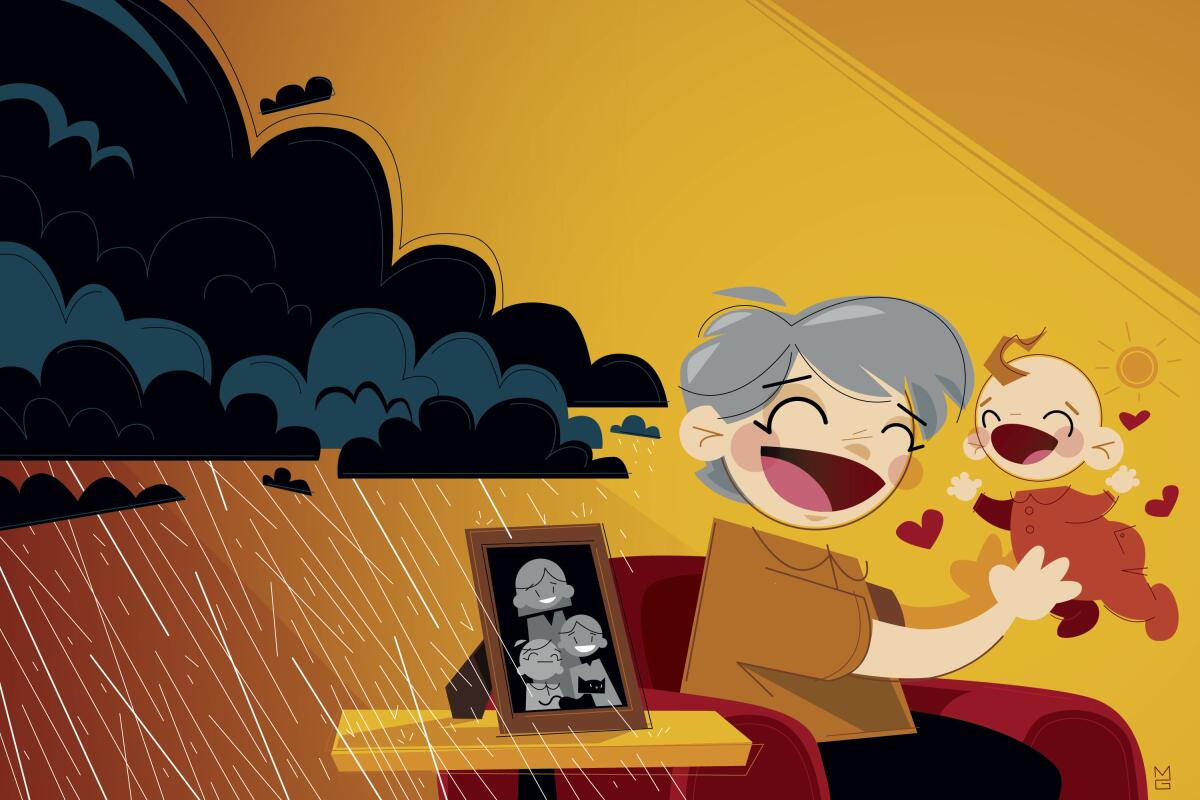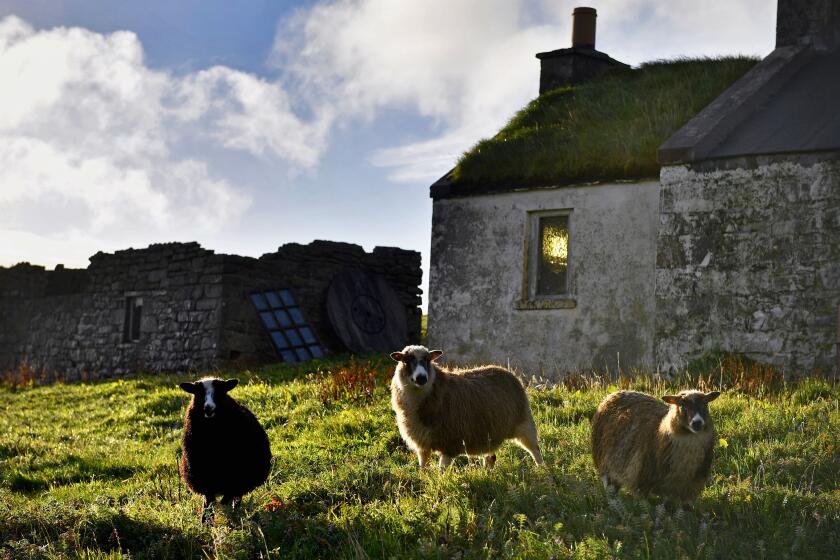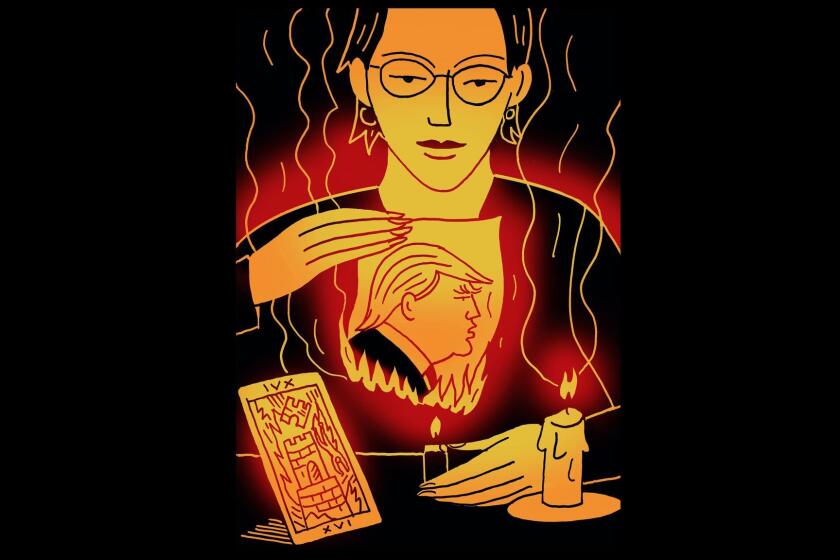Op-Ed: What gratitude looks like now

- Share via
I overheard my neighbor talking to an elderly friend. They both were wearing masks and standing on the sidewalk outside my neighbor’s house.
“It’s all I can do,” my neighbor said. “It is what it is,” her friend replied.
I didn’t know what they were talking about, but I nodded my head in agreement. It seems these days we are all spouting platitudes that hedge on hope and qualify everything.
I find myself resorting to them often: “Could be worse” or “Better than the alternative.” Usually followed with a shrug and half a smile.
Did I really even exist if I wasn’t sharing my days with my cyber community?
There’s a reason: Things are better than they were, but they are still terrible. A majority of people in the U.S. are vaccinated, but too many are still dying. We elected a new president, but compromise and collaboration seem as far away as ever. Schools are back in session, but teachers and students report record levels of stress.
My husband and I personally have not had a great year. My mother-in-law, our only remaining parent, died. Not of COVID, but from COVID — the loneliness, the fear, the inability to live her regular life. She couldn’t see her friends, she grew depressed, she gave up and she died.
My showrunner husband, who usually works nonstop, has had one project in the last 18 months. The unscripted television business practically shut down and has been slow starting up again.
I was teaching as an adjunct when the pandemic struck, but that job has not returned.
Our second car died, and we don’t want to spend the money to replace it.
We need a new roof.
Now comes Thanksgiving. Even with its violent and unhappy history, I usually consider Thanksgiving — more than New Year’s — as a time to reflect and remember to be grateful, give thanks and appreciate what’s good.
Last year, my family had Thanksgiving via Zoom. It was awkward, sad, technically challenging. We had no idea when or if we would all get to gather together again. My daughter-in-law was pregnant and I didn’t think I’d ever be able to hold the baby, our first grandchild. My mother-in-law was failing and basically silent for the entire dinner. She sipped a glass of wine and didn’t eat.
So yes: “Things could be worse.” This year, “it’s all about how you look at it,” and I am grateful.
My mother-in-law always lied about her age, so I won’t reveal it here, but she lived a long, full, happy life. We got vaccinated in time to fly across the country to see her and be there for the end.
Not having to go to an office every day meant my husband could pursue some long overdue and meaningful personal projects.
Not teaching meant I could finish my novel sooner than I expected.
With both of us home instead of commuting long distances and coming back late, we cooked and watched too much TV and walked the dog together, and we actually remembered how to enjoy each other’s company.
Because we’re not working outside the house, we really don’t need that second car.
And it almost never rains here, but when it does, we know exactly where to put the buckets.
Best of all, the vaccinations came through and I not only can hold my granddaughter, I even get to babysit.
I cast a spell on the president. I was not alone.
So this year we’re having Thanksgiving dinner live and in person with 15 vaccinated adults and one baby.
There’s another pandemic aphorism I can spout: “This too shall pass.” Trouble is, I just don’t know what this will pass into. What will come next?
“I’m not getting any younger.”
“When it rains, it pours.”
I worry.
“How bad can it get?”
It can get really, really bad. But I think about the 14th century theologian Meister Eckhart and his philosophy that is itself something you see on a poster at the dentist’s office or on a coffee mug: “If the only prayer you ever say in your entire life is thank you, it will be enough.”
I think he’s right.
“Thank you.”
Diana Wagman, a contributing writer to Opinion, is the author of six novels.
More to Read
A cure for the common opinion
Get thought-provoking perspectives with our weekly newsletter.
You may occasionally receive promotional content from the Los Angeles Times.












